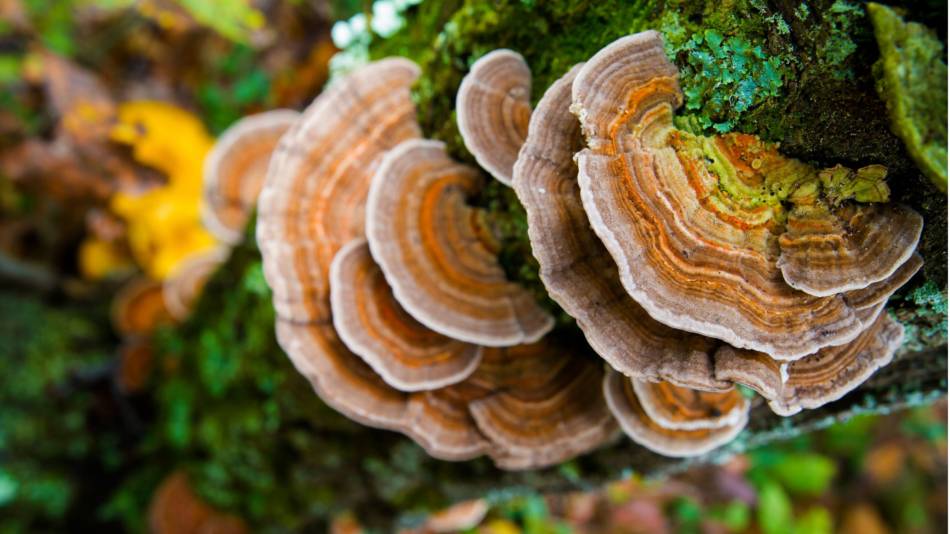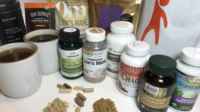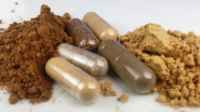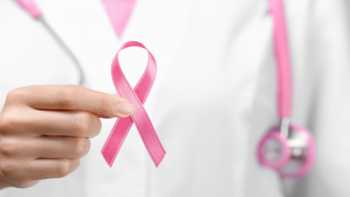
Answer:
What is turkey tail
Turkey tail (Coriolus versicolor or Trametes versicolor) is a mushroom common in parts of Asia, North America and Europe. It has a disc-like shape and brown and tan coloration that resembles the appearance of a turkey's tail.
Turkey tail contains two polysaccharide compounds, polysaccharide-K (also known as PSK or krestin) and polysaccharopeptide (PSP), both of which are thought to have immune boosting effects and anticancer activity based on evidence from laboratory studies (Medicinal Mushrooms (PDQ), In: PDQ Cancer Information Summaries [Internet] 2023; Saleh, Front Immunol 2017). These constituents have been used for decades in Japan and China, respectively, as adjuvant treatments for cancer, but they are not approved for cancer treatment in the U.S.
What are the health effects of turkey tail
As discussed in detail below, although evidence suggests that turkey tail has immune boosting properties, it is not clear that it improves survival in people with cancer or reduces side effects among those being treated for cancer. It has generally been safe to take, but it's potential interactions with medications are not well studied, and people with autoimmune conditions or who need to suppress their immune systems should be cautious of using turkey tail due to its possible immune-stimulating effects.
Adjuvant treatment for cancer
Research conducted mainly in the 1980's and 90's suggests that constituents of turkey tail may help strengthen the immune system and repair damage to cells of the immune system caused by chemotherapy (Medicinal Mushrooms (PDQ), In: PDQ Cancer Information Summaries [Internet] 2023; Habtemariam, Biomedicines 2020; Saleh, Front Immunol 2017), but there is conflicting evidence as to whether turkey tail constituents help improve survival or reduce side effects of cancer therapy.
Nevertheless, PSK is approved as adjuvant treatment for cancer in Japan, and PSP has been used for this indication in China. However, they are not approved as drugs in the U.S. The compounds used in Japan and China are produced from two specific strains of turkey tail ("CM-101" strain for PSK and "COV-1" strain for PSP), and it is unclear if using other strains of turkey tail would have similar benefit (Habtemariam, Biomedicines 2020), although one study (described below) suggests turkey tail (strain not specified) may boost immune function following radiation therapy for breast cancer.
Breast Cancer
Although turkey tail and its constituent PSK have been shown to boost immunity among women treated for breast cancer, there do not appear to be any studies evaluating the effects of these compounds on clinically relevant outcomes measures, such as survival or cancer side effects in breast cancer patients.
A preliminary study among 9 women with breast cancer who had completed radiation therapy showed that taking 6 or 9 grams of turkey tail freeze-dried mycelial powder (by Fungi Perfecti Inc., the maker of Host Defense Mushrooms products) daily for 6 weeks resulted in earlier recovery of lymphocyte count (a type of white blood cell) compared to the control group that did not received turkey tail. Taking 6 grams of turkey tail, but not 9 grams, also tended to increase the activity of NK cells (white blood cells that destroy diseased cells such as cancer), although the result was not statistically significant. Receiving only 3 grams of turkey tail daily was not beneficial (Torkelson, ISRN Oncol 2012). Similar immune boosting effects have been shown among breast cancer patients treated with the turkey tail constituent PSK (Medicinal Mushrooms (PDQ), In: PDQ Cancer Information Summaries [Internet] 2023). However, it is unknown whether these immune-boosting effects translate to improved survival or reduced incidence of illness or infection among people with breast cancer.
Colorectal cancer
An analysis of seven clinical trials among 1,569 people in China or Japan who had surgery for colorectal cancer followed by treatment with radiotherapy and chemotherapy showed that taking PSK for 4 weeks to three years had little to no effect on side effects of cancer treatment. Although there was a slight increase in 5-year overall survival with PSK compared to no PSK, the combinations of drugs used as chemotherapy in some of the included studies are no longer used in practice, and it is uncertain if PSK would have benefit when used with currently available chemotherapy regimens (Pilkington, Cochrane Database Syst Rev 2022).
Lung cancer
Several studies have evaluated the turkey tail constituents PSK or PSP among people with lung cancer, but evidence of benefit for increasing survival or improving cancer-related symptoms has been mixed. There do not appear to be any studies evaluating turkey tail supplements for lung cancer.
A review of two clinical trials conducted in the late 1980's/early 90's that assessed the effects of PSK on survival in people with non-small cell lung cancer found that neither study showed a significant benefit on overall median survival, although one found that taking 3 grams of PSK daily starting two weeks after surgery and chemotherapy and continuing for two years thereafter resulted in higher 1-year survival compared to surgery and chemotherapy alone (88.9% vs. 61.8%) (Fritz, Integr Cancer Ther 2015). Higher quality studies are needed to prove a benefit, if any, of PSK for lung cancer survival.
A review of three clinical trials (all conducted in China in the 1990's or early 2000's) that evaluated the effects of PSP on cancer-related symptoms found that two showed improvements in symptoms such as fatigue, loss of appetite, nausea, dry mouth, pain, difficulty sleeping and others among those taking 3 grams of PSP daily along with chemotherapy and/or radiation therapy for two months compared to no PSP. However, the third study, in which people with advanced stage non-small cell lung cancer were given about 3 grams of PSP daily following chemotherapy showed no improvement in any cancer-related symptoms (Fritz, Integr Cancer Ther 2015). Since all of these studies were published decades ago, it is unknown whether PSP has any benefit when used along with current standard treatments for lung cancer.
Stomach cancer
There is conflicting evidence regarding the effects of PSK on survival among people with stomach cancer. There do not appear to be any studies evaluating turkey tail for stomach cancer.
An analysis of 8 clinical studies conducted in Japan in the late 80's and early 90's and including more than 8,000 patients who had surgery for stomach cancer suggested that those who received PSK along with chemotherapy after surgery had slightly greater odds of surviving for 5 years compared to receiving chemotherapy alone (61% 5-year survival in PSK group vs. 58% in control group) (Oba, Cancer Immunol Immunother 2007). On the other hand, a later study in Taiwan among 918 people with stage II to III stomach cancer who had surgery for stomach cancer followed by 6 months of chemotherapy (usually either intravenous fluorouracil or oral tegafur/uracil) showed that those who also received 1 gram of PSK three times daily for 6 to 12 months had no better 5-year overall survival than those who receiving chemotherapy without PSK. However, for those with tumors considered to be negative for the expression of programmed death-ligand 1 (PD-L1), a protein on the surface of tumor cells that helps the tumor evade the immune system, PSK had longer survival than those not treated with PSK (97.5 vs 70.1 months) (Hsu, J Surg Res 2017).
Improving gut microbiome
The turkey tail constituent PSP is thought to have prebiotic-like activity based on laboratory research, but results in humans are inconclusive. It is unclear if turkey tail itself can improve the gut microbiome.
A test-tube study showed that including PSP in the culture medium of human fecal microbiota increased levels of "helpful" bacteria such as Lactobacillus and Bifidobacterium species while reducing levels of "bad" bacteria such as Clostridium, Staphylococcus, and Enterococcus species (Yu, Plant Foods Hum Nutr 2013). However, a study among 22 healthy adults (average age 31) showed that taking 1.2 grams of PSP three times daily on an empty stomach for 2 weeks had only a very small effect, if any, on the gut microbiota compared to baseline (Pallav, Gut Microbes 2014).
Other uses
Turkey tail has been shown to increase strength and reduce physical fatigue during exercise (Ho, Int J Med Sci 2017), reduce blood sugar and improve insulin resistance (Lo, Int J Med Mushrooms 2020), and help prevent obesity due to high dietary fat intake (Li, Mol Nutr Food Res 2019) in animal studies. However, these benefits have not been confirmed in humans.
Safety
Turkey tail seems to be generally well tolerated when used for up to 6 weeks in dosages up to 9 grams/day. Mild heartburn and mild chest pain were reported in one clinical study among two people taking 3 and 6 grams of turkey tail, respectively (Torkelson, ISRN Oncol 2012). The turkey tail constituents PSK and PSP appear to be safe when used for up to 5 years, typically in doses of about 3 grams daily. One participant receiving PSP reported increased gas and burping (Pallav, Gut Microbes 2014). PSK was linked with nail discoloration in one study (Fritz, Integr Cancer Ther 2015).
Because turkey tail and its constituents are thought to work by stimulating the immune system, it may not be prudent for people with autoimmune diseases or those taking immune-suppressant drugs to use this supplement (Fritz, Integr Cancer Ther 2015).
Although PSK has been taken along with various chemotherapy drugs in numerous clinical studies, and there does not appear to be any evidence suggesting possible harm, there also do not appear to be any clinical studies evaluating the effects of PSK on the absorption and metabolism of chemotherapeutics (Fritz, Integr Cancer Ther 2015). It is unknown whether turkey tail can interact with chemotherapy drugs.
Why ConsumerLab has not tested turkey tail supplements
ConsumerLab has been unable to reliably test for turkey tail in supplements as there have been no published compendial methods of analysis for turkey tail.
Some turkey tail supplements, such as Turkey Tail Mushroom by Gaia Herbs and Turkey Tail Mushroom Extract by Real Mushrooms are standardized to at least 30% beta-glucans. Although PSK and PSP, both of which are isolated from turkey tail mycelium, are beta-glucans (Habtemariam, Biomedicines 2020; Tsukagoshi, Cancer Treat Rev 1984), it is unclear what portion of the beta-glucans in these standardized extracts are PSK and/or PSP.
For details about mushroom supplements that ConsumerLab has tested, see our reviews of lion's mane and reishi mushroom supplements.
Join today to unlock all member benefits including full access to all CL Answers and over 1,400 reviews.
Join NowAlready a member? Sign In Here.
Join now at www.consumerlab.com/join/











Submit your comment
This feature is restricted to active members.
Join now to add comments and get all member benefits, including over 1,400 reviews.
Join NowAlready a member? Sign in here.